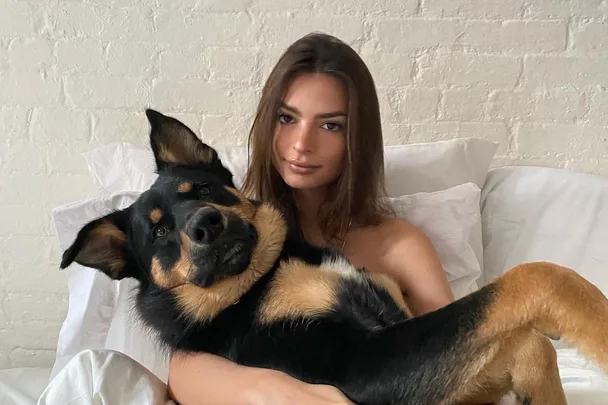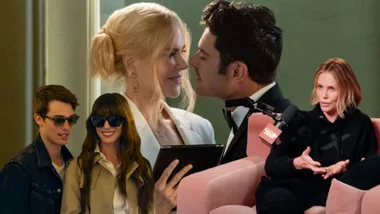Being dissed by the Pope wasn’t on my 2022 bingo card, but here we are. According to the head of the Catholic Church, people who choose to have pets over children – that’s me and a whole heap of my millennial mates – are being selfish and eroding the very fabric of humanity. Ouch.
When the pontiff’s insult made headlines in January, it struck a nerve, and I felt an overwhelming desire to defend my life choices. But then my rescue dog, Daisy, curled up next to me on the couch and sighed, and suddenly the comments of a childless 85-year-old virgin on the other side of the world didn’t seem to matter so much. I adopted Daisy from the Alice Springs Animal Shelter last year during a midlife crisis of sorts. After a breakup, a series of moves and a career change, I was feeling lost in the world. I wanted some stability, a reason to get out of bed in the morning and unconditional love – and I wanted it in the shape of a kelpie x german shepherd.
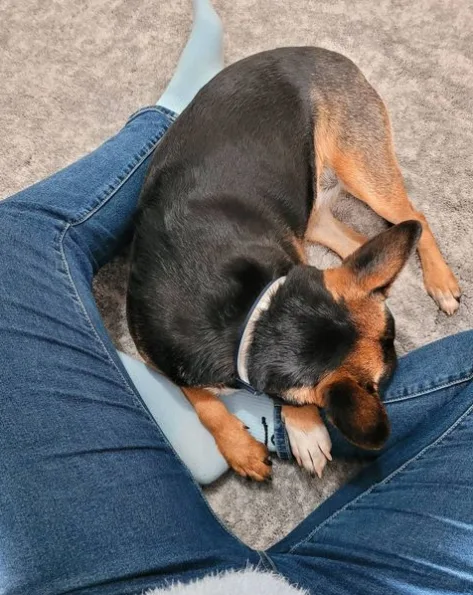
I’m far from alone in my yearning. If you’ve recently been to a cafe and tripped over a hopscotch maze of water bowls, walked past a park (any park), or watched a dozen videos in a row of lost puppies being reunited with their owners, you’ll know it’s a dog’s world, we’re just living in it. Pet ownership in Australia has hit record highs since the pandemic and, according to a survey conducted by Animal Medicines Australia, 69 per cent of households now own a pet. It’s millennials who are leading the charge and finding a sense of purpose via animals, with more than 60 per cent of people aged 26–41 owning a pet.
At the beginning of 2021, Allira Potter, a Yorta Yorta author, spiritual coach and self-confessed “cat person”, asked the universe to give her a sign if she should get a dog. The next day she saw a Gumtree ad for a mini groodle puppy and instantly fell in love with Cosmo. In the past year, Cosmo has completely changed Potter’s life – for the better. “I’ve never been a dog person but I get it now,” says Potter, 30. “Cosmo has become part of my family. He’s given me a new sense of responsibility. He makes me get out, go for walks, interact with people and plan my day around something other than myself. For all those reasons, and more, he’s really helped with my mental health and wellbeing.”
The mental and physical benefits of having a dog are well-documented. Dog owners have a 24 per cent lower risk of all-cause mortality, a 65 per cent lower risk of death after a heart attack, and a 31 per cent lower risk of death from cardiovascular causes. What’s more, dogs are known to have positive impacts on anxiety, depression and loneliness. Considering millennials are the most anxious generation on record, and that one in 10 of us live alone, it’s perhaps not surprising that we’re turning to canines for comfort.
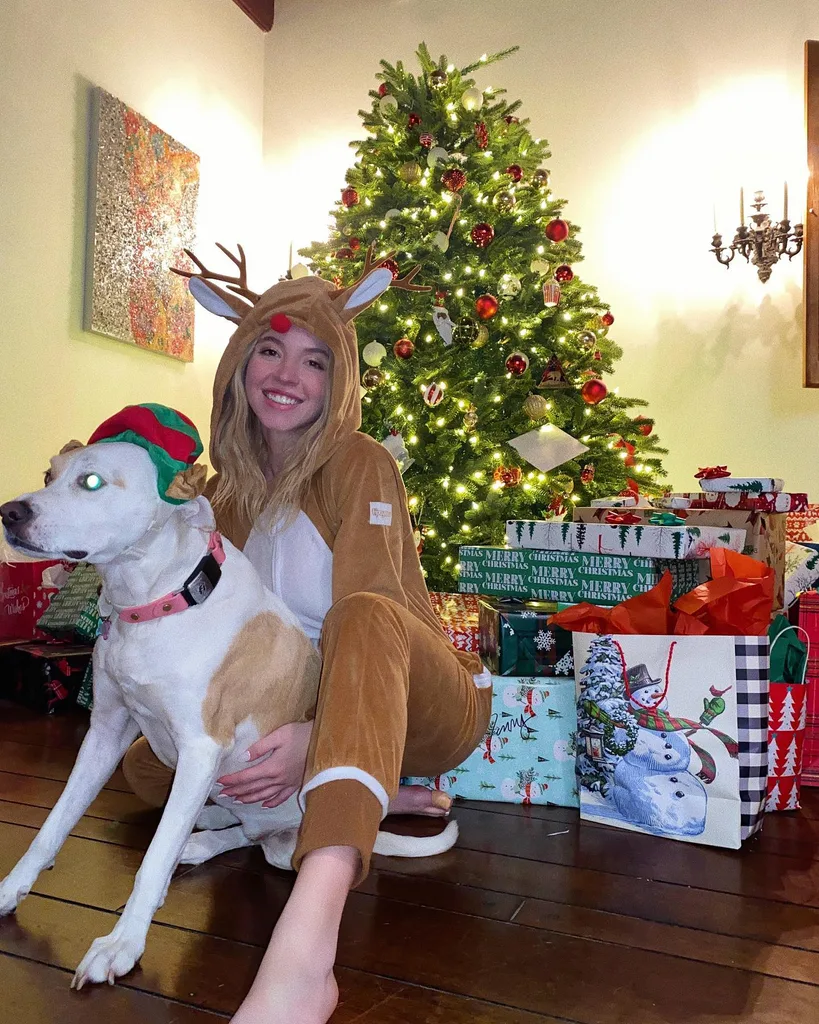
“The health benefits of owning a dog are significant. It can decrease your blood pressure, help with asthma, food allergies and eczema, and lower your risk of dying,” says Dr Min Yeo, whose poodle Mimi is a trained therapy dog. “Just by gazing at each other, humans and dogs experience a surge of the love hormone oxytocin, which is similar to how parents feel when they look at their baby.” The term fur baby isn’t just a slightly obnoxious Instagram hashtag, it’s a reflection of the very real phenomenon where people now see their pets as pseudo children. A study by Legal & General found that 71 per cent of people who got a dog during lockdown did so as a substitute for having a baby.
When Kathryn Madden, a 30-something editor in Sydney, announced on Instagram in November the arrival of her fur baby Ginger Rogers (named so because anything Fred Astaire does she can do backwards and in heels), it was met with the same fanfare as the birth of a human child, with squeals of “Oh my God, congrats,” and “Welcome to our world little miss.” For Madden, getting a dog wasn’t a substitute for having a baby but it certainly filled a gap in her life. “From the moment Ginger Rogers first snuggled into my chest, a teeny eight-week-old ball of fluff looking up at me with the biggest, softest eyes, I felt an instant gush of love,” she says. “I could talk about her all day, send photos of her to my family incessantly and am convinced she’s the sweetest, most special puppy to ever grace the earth – so I guess there are parallels with motherhood, albeit on a smaller scale.”
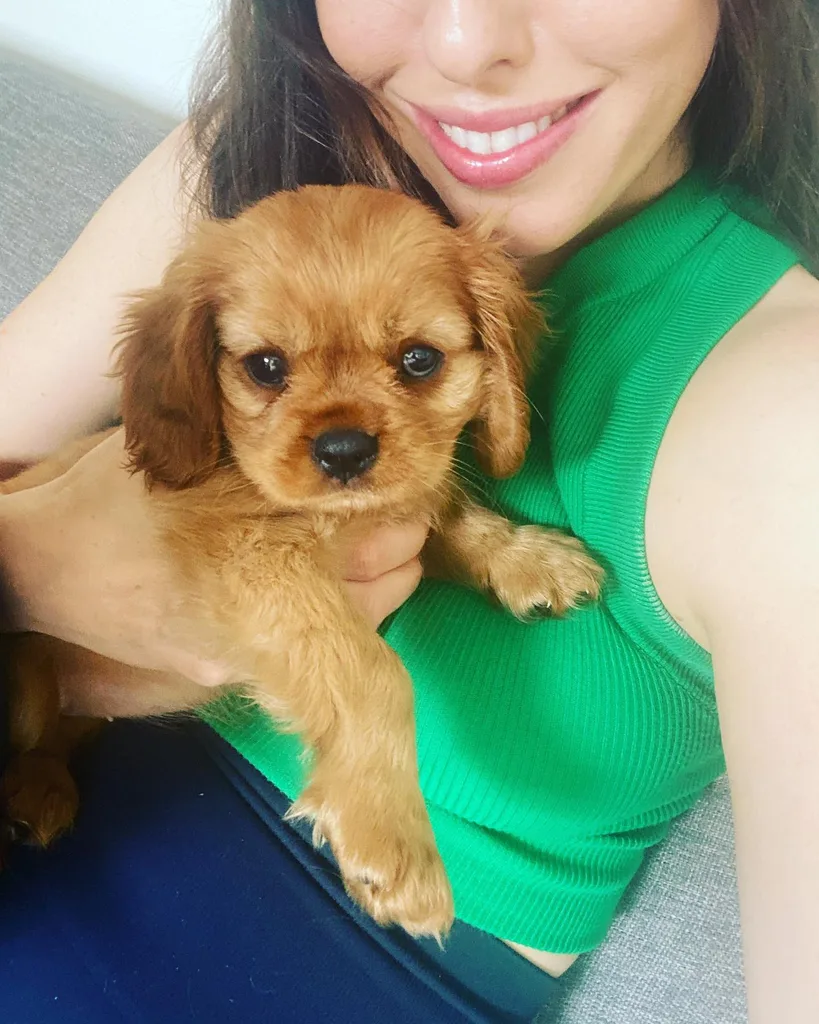
Australia’s childbirth rate is at an all-time low. The decline has been attributed to better education and employment for women, who are choosing to start families later
in life and consequently having fewer children. There are also those who are deciding against babies altogether for various reasons: the climate crisis; overpopulation concerns; ever-increasing housing (and living) costs and, oh yeah, the pandemic. It’s here – at the low point on the fertility graph – that the rise in pet ownership picks up. “Dogs are less responsibility than a baby, they’re less likely to scream at 2am and they can be left at home alone when you go to do the shopping,” explains Yeo. “But I still have to pick up the poo,” adds Potter, who often finds herself talking about Cosmo when her friends with kids complain about the hardships of parenthood. “When I look back at photos of Cosmo as a puppy, it’s incredible to think I’ve raised him. The best thing about having a dog is watching them grow, which is similar to motherhood, I would imagine.”
For couples, raising a dog can be a make-or-break experience, a stepping stone towards or a giant leap away from having a baby. “Getting a dog can be bonding and bring couples closer together,” says Yeo, who notes that our definition of family is expanding to include pets. “For people who can’t have kids or choose not to, a dog can help with companionship and bring some certainty in these uncertain times.”
Before you start listing all the ways dogs are different from babies, know this: a study conducted by Kelton Research found that 81 per cent of people consider their pets as equally important to the family as children, and 78 per cent of women consider themselves a “dog mum” rather than a dog owner. And these pet parents are spending accordingly. “The ‘puppy pandemic’ means there are more dogs in the market and as people spend more time at home with their dogs, the bond has strengthened,” says former PR whiz Tracy Baker. “Owners are applying human wellness principles to their dogs. They are more conscious of their dog’s need for exercise, socialisation and the benefits of regular grooming and healthy eating.” Baker traded fashion brands for fur babies in April last year when she took on the role of chief operating officer and head of brand at Fido & Fido in Sydney’s Double Bay, which offers blueberry facials, a VIP pet chauffeur service and a canine-only weekend retreat in the countryside. Of course, all of these things come at a cost.
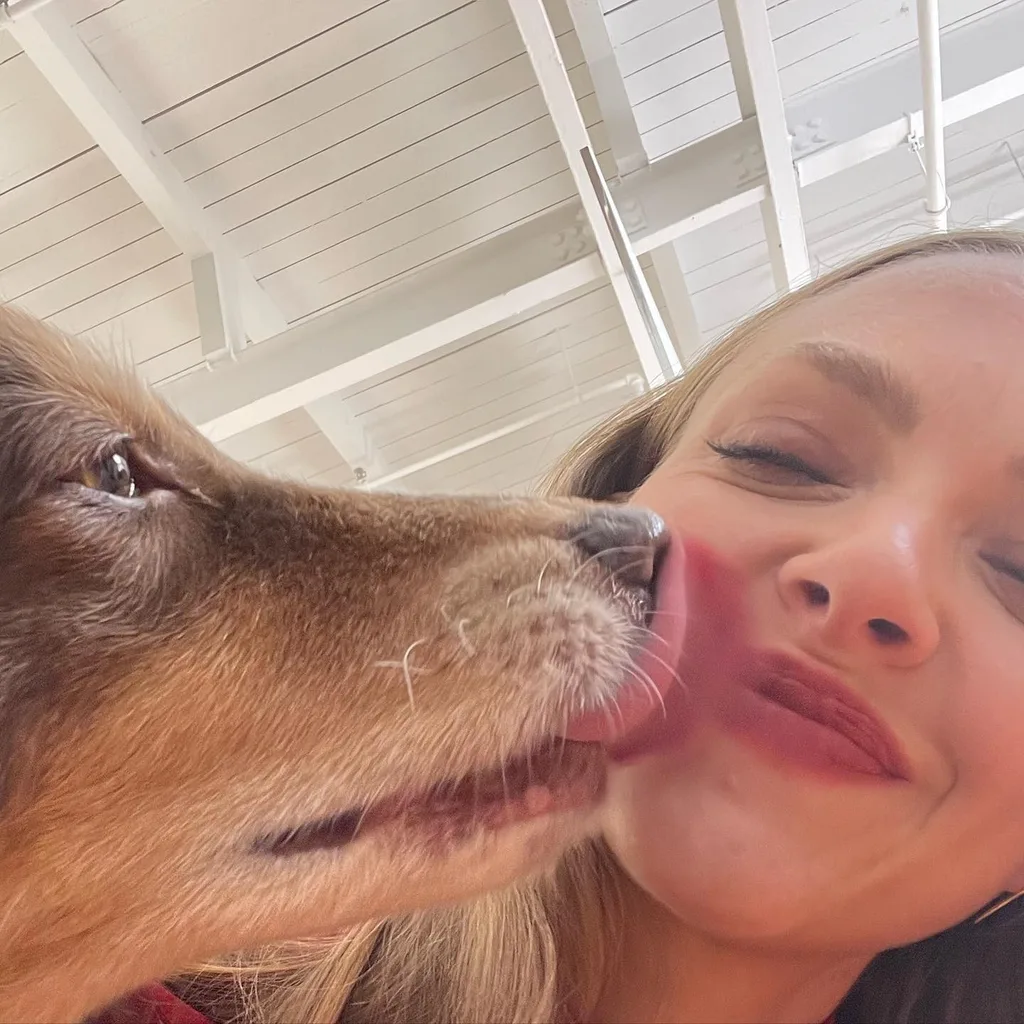
It raises the question: what price can you put on unconditional love? Quite a bit, as it turns out. The global pet-care industry grew from $US216 billion in 2020 to $US232 billion in 2021, and has expanded to infiltrate our everyday lives. Trendy cafes have added puppuccinos to their menus, the Ovolo Hotels chain now offers dog-friendly stays complete with complimentary treats, and there’s even a dating site exclusively dedicated to helping single dog owners “find their paw-fect match”.
I’ll admit it, my Daisy has a leather collar, two beds (one for day naps and the other for night-time), and a personalised tag that reads, “They see me rollin’, they hatin’.” Millennials are spending small fortunes, dedicating their lives, and sharing their beds with their dogs. Our four-legged friends have become so much more than pets. In a world where (human) relatives have been separated by border closures, where touching elbows has replaced hugging and where masks hide smiles, a slobbery kiss from a dog has never been more welcome. I’m speaking from experience here as a single millennial who works for myself and lives in a different state from my family.
For me – and all the other fur parents the Pope criticised in January – having a pet isn’t an act of selfishness. It’s a much-needed connection, a last-ditch attempt at having a family, or a cry for help (if you’re dramatic like me). Since Daisy came into my life, my priorities have changed. Last week, I left a party before 9pm – a first – because my dog was home alone and I was worried about her. If anything, Daisy has made me less selfish. All I want in life is to be a good dog mum, even if that means leaving a party when I’m still having fun. Maybe the Pope could do with having a puppy in his life?
